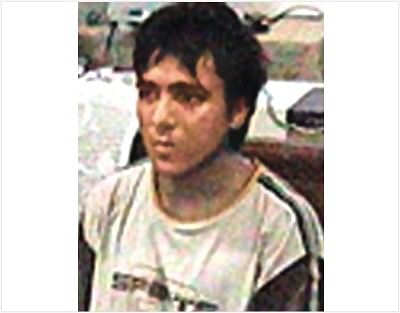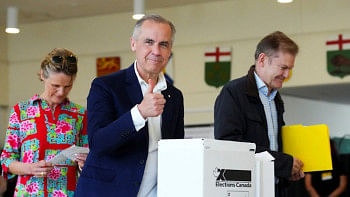Kasab to die

Ajmal Amir Kasab
The lone surviving gunman of the 2008 Mumbai attacks was sentenced to death yesterday, but any execution will only happen after a lengthy appeal process is completed, legal experts say.
In a widely-expected decision, 22-year-old Mohammed Ajmal Amir Kasab, a Pakistani national, was given the death penalty after a year-long trial at a prison court in the city he attacked nearly 18 months ago.
The question now is when, or even if, India will actually send him to the gallows.
India has not carried out an execution since 2004 and has hanged only two people since 1998. The Supreme Court says the punishment is reserved for the "rarest of rare" crimes.
The last available statistics show that 308 people were on death row at the end of 2007, although no breakdown was provided about the status of prisoners in the appeals process.
Those waiting to hear their fate include the killers of former prime minister Rajiv Gandhi, who was assassinated in 1991, and Mohammad Afzal, a Kashmiri separatist convicted over an attack on India's parliament in 2001.
Home Minister P Chidambaram said last year that pleas for clemency to the president would be considered carefully on a case-by-case basis but refused to specify a time-frame for any decision.
Meenakshi Ganguly, South Asia researcher at Human Rights Watch, said Kasab's case was likely to be caught up in the lengthy -- and potentially open-ended -- legal process.
"They have to go turn by turn, so there are others ahead in the queue," she told AFP.
A senior researcher at Amnesty International in London added: "If the government follows that principle, as they said they would, it's unlikely we will see Kasab's execution very soon."
Nevertheless, observers said Indian authorities could come under intense pressure to fast-track the case, amid lingering public outrage at the Islamist militant attacks, which killed 166 and wounded more than 300.
Under Indian law, death sentences have to be confirmed by the local state high court. Defendants can appeal against the verdict and sentence, and challenge the decision further at the Supreme Court.
A final appeal is available to the state governor. If that is rejected a petition for mercy can be submitted to the president.
In 2007, Indian courts sentenced to death 186 people but in the same period 881 capital cases from previous years were commuted to life imprisonment, according to the National Crime Records Bureau.
Exact figures are unavailable but the Supreme Court is thought to uphold only five to 10 death sentences every year.
Delays in implementing death sentences disappoint some supporters of capital punishment, including lawyer Ujjwal Nikam, who prosecuted the Mumbai attacks case.
"It weakens the deterrent purpose of the punishment... The law should be changed," he told AFP in an interview.
Officially, the Indian government supports the death penalty. In 2007, it voted against a successful UN General Assembly motion calling for a worldwide moratorium on capital punishment.
Chidambaram told The Hindu newspaper last year that executions will be carried out but indicated that delays were "because there is the larger issue that the death penalty itself be replaced with life sentence without parole".

 For all latest news, follow The Daily Star's Google News channel.
For all latest news, follow The Daily Star's Google News channel. 



Comments